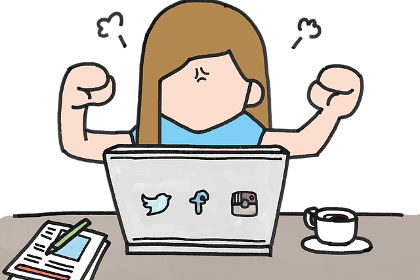
Conquer Your Email Inbox, Increase Productivity and Reduce Stress
Finances and work are the two leading causes of stress in America today, according to the American Psychological Association (APA) annual survey.
Although you cannot control the country’s economy, you can control your own workday and productivity, thus reducing some of your daily stress levels.
October 15, 2016 | Source: Mercola.com | by Dr. Joseph Mercola
Finances and work are the two leading causes of stress in America today, according to the American Psychological Association (APA) annual survey.1
The survey also demonstrates how financial stress has impacted the health of Americans, as 12 percent of people skipped seeking healthcare because of finances and 31 percent said money was a major source of conflict in their relationship.2
Although you cannot control the country’s economy, you can control your own workday and productivity, thus reducing some of your daily stress levels.
Lack of movement or sitting all day, lack of exercise, interaction with technology, lack of sleep and a poor nutritional plan may all reduce your productivity and your feeling of satisfaction with the work you accomplish.
While each of these factors holds a key to improved focus and productivity, it is through your interaction with technology that you may experience the most dramatic change in the shortest period of time.
Control Your Email Inbox
How an Editor Stays at Inbox Zero
Many spend hours of their day in front of a computer screen, using email as a source of communication with their superiors, customers and teams. In this video, James Hamblin, an editor at The Atlantic, describes how he’s been able to cut down on the amount of time he spends writing and reading emails.3
His first step is to create shorter emails, without the customary greeting and signatures common in written letters. His point is that your recipient already knows who is sending and receiving the email from the sent and receiving email addresses.
Next, keep your message brief. Three lines or less are all that are needed to communicate your thoughts to the recipient and should cut down on the amount of time it takes you to both write an email and your recipient to read your incoming email.
If more information is needed, it’s time to pick up the phone and have a conversation. However, the strategy that will most significantly reduce the amount of time you spend with your inbox open is to stop using your email as a "to-do" list.4
In other words, every time a new email hits your inbox, it is not a signal to open and read. You’ve probably been tempted to look at new emails each time you’re notified, even when you receive the same emails each day.
It turns out there is good reason for your highly distractible brain to engage with each new ding on your computer, and it is not associated with the relative importance of the email content.
It Is All About Your Brain
https://www.youtube.com/watch?v=VEpiF3MH82s
This is part of an interview I did with Dr. Theo Compernolle on several topics, including his work in clinical psychiatry, neuropsychiatry and neurology and the relationship between your brain function and your ability to multitask.
By understanding the way your brain functions you can significantly improve your productivity.
Although many believe that multitasking is not only possible, but also the best way to accomplish more in less time, the converse is actually true. To understand, it’s helpful to think of your brain as a complex and multi-functional computer.
Your 80 billion neurons, and the 1,000 to 300,000 connections between each of those neurons, are interconnected.
The reflexive part of your brain deals with the absolute here and now. This is the part of your brain that processes your senses. The reflective part of your brain allows you to think abstractly and to think about that which does not yet exist.
When you create a contingency plan based on what you think may happen in the future you’re using your reflective brain.
The part of your brain that stores memory Compernolle calls your “archiving brain.” However, when you are actively thinking, your brain doesn’t have enough processing memory to archive. Only when you take a break from thinking does your brain get the opportunity to archive, such as the first part of the night when you’re sleeping.
For a more in-depth discussion of these three functions of your brain, see my previous article titled, “Understanding Your Brain Can Make You Calmer and Much More Productive.” These three functions explain why multi-tasking is not as productive as you may have imagined.
